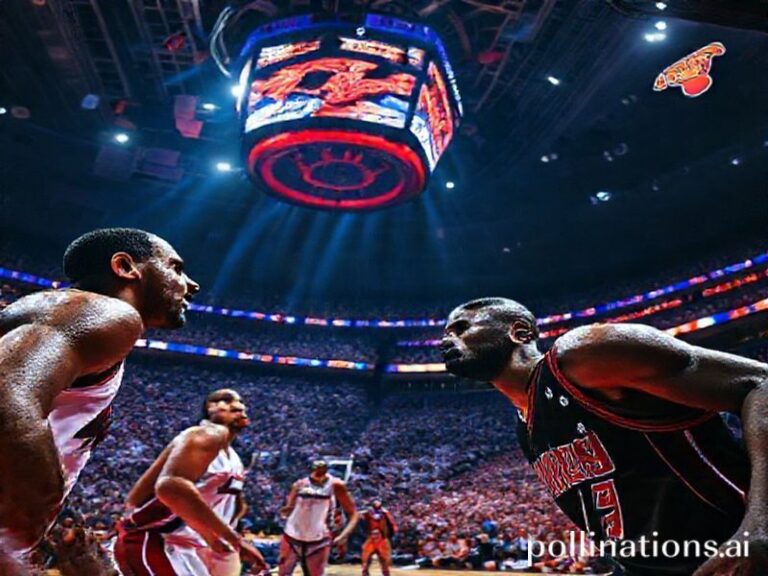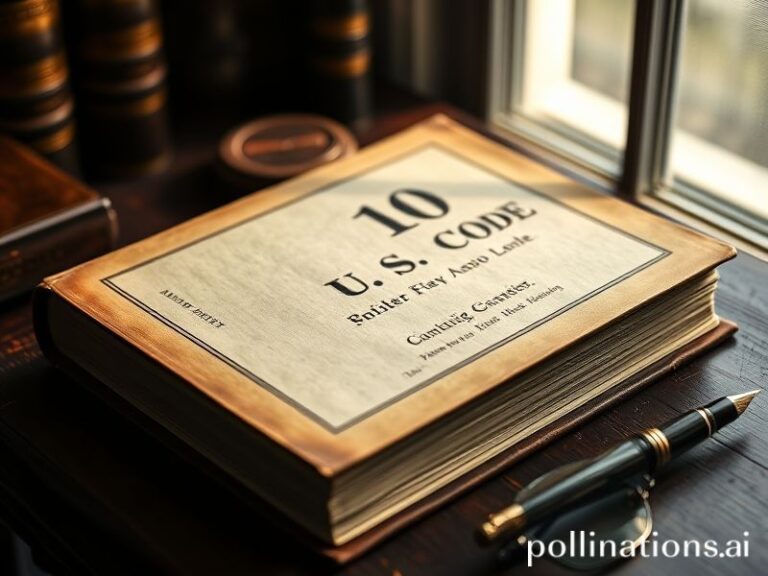Rugby World Cup 2023: How 30 Men and a Misshapen Ball Keep Global Chaos at Bay
Rugby World Cup: When 15 Men and a Ball Become the UN Security Council’s Only Functional Sub-Committee
By Our Correspondent, currently elbow-deep in lukewarm stadium lager somewhere between the Tropics and Lat. 34°S
The Rugby World Cup kicked off again this autumn—because apparently we needed another quadrennial reminder that human beings will happily volunteer to be pile-driven into chemically fertilised grass for the honour of singing a national anthem slightly off-key. From Bordeaux to Brisbane, 20 nations have gathered to discover whose cervical spine can withstand the most diplomatic pressure.
France is hosting this edition in nine cities, which is convenient: should the tournament descend into its usual administrative farce, the paperwork is already within striking distance of the European Court of Human Rights. The French, ever the pessimistic perfectionists, have promised “the most sustainable World Cup ever,” a claim immediately undermined by the 400-tonne temporary scaffold they erected to seat the All Blacks’ haka. Sustainability, like a forward pass, remains largely theoretical in rugby.
Global Implications—or Why Your Pension Might Depend on a Scrum
At first glance, 30 blokes grappling over an egg-shaped ball seems unrelated to the price of eggs in Sri Lanka. Look closer. Broadcast rights have been flogged to every streaming platform short of the dark web; the economic ripple is expected to out-gross the GDP of at least three Pacific Island nations whose actual teams are playing. Fiji, Tonga and Samoa—collectively responsible for 70 % of the world’s bone-rattling tackles—will receive precisely enough compensation to repaint one airport runway, assuming they don’t spend it on concussion lawyers first.
Meanwhile, geopolitics performs its own line-out. Argentina’s squad arrived fresh from a 211 % inflation rate, making their jerseys the only garments in Buenos Aires that haven’t halved in value overnight. South Africa’s Springboks carry the hopes of a nation where the power grid collapses faster than a wet scrum, offering citizens a rare chance to watch something other than candle-lit doom-scrolling. And don’t overlook the United States, who have quietly assembled a team so multicultural it could qualify for EU membership. Their goal? Finish above Portugal and avoid being mistaken for the soccer team—again.
The Broader Significance: Ritualised Violence as Soft Power
Rugby’s genius is its ability to market controlled carnage as character-building. Every tackle is a metaphor for trade negotiations; every ruck a Brexit summit with dental injuries. The sport’s vocabulary—“maul,” “blood bin,” “sin bin”—sounds less like athletics and more like Guantanamo Bay’s suggestion box. Yet sponsors queue up, eager to slap fintech logos on jerseys that will shortly be used as emergency tourniquets.
This year’s tournament also doubles as a dress rehearsal for the 2030 climate apocalypse. Average September temperatures in France have climbed two degrees since 2007, turning the pitch into a sort of soggy crêpe. Organisers have thoughtfully scheduled water breaks so players can hydrate between bouts of heatstroke, a humanitarian gesture previously reserved for camels.
And then there’s Japan, reigniting memories of 2019 when they toppled Ireland and Scotland before politely bowing out in the politest quarter-final bloodbath ever televised. Expect more seismic upsets as Tier-2 nations discover that raw desperation is an underrated performance enhancer. Italy, perennial wooden-spooners, have threatened to actually win something, presumably to distract from their government collapsing on the other channel.
Final Whistle: What It All Means
In the end, the Rugby World Cup is a 48-match metaphor for humanity’s preferred conflict-resolution method: run straight at the problem until someone’s nose rearranges geography. One country will lift a trophy forged from melted-down 19th-century colonial hubris; the rest will mutter about referee conspiracies and schedule flights home in economy.
But for six glorious weeks, the planet’s doom-scroll pauses. Stock markets still fluctuate, wars still simmer, but somewhere a winger is scoring in the corner while a commentator mispronounces “Māori” with Gallic enthusiasm. And perhaps—just perhaps—that’s enough to keep civilisation limping along until the next tournament, by which time we’ll all be underwater anyway. At least the scrum will finally have an aquatic theme.







